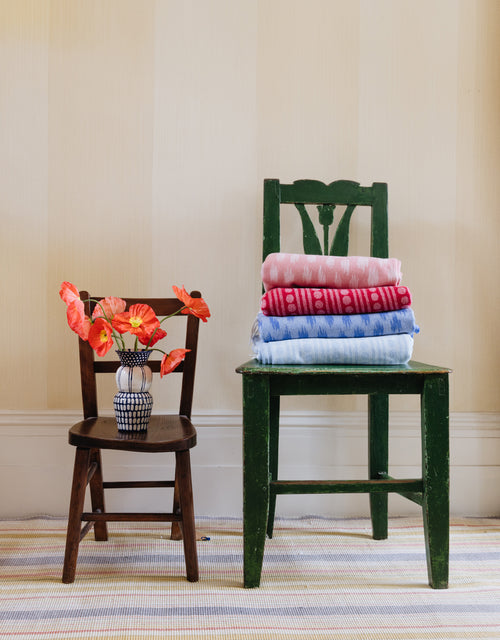|
Alexandra Tolstoy describes herself as a devotee of extreme travel, style, fashion and family. The Anglo-Russian is also an equine adventurer, broadcaster, author and a fellow of the Royal Geographical Society. She has made several long-distance journeys on horses which have provided the material for television documentaries, books and talks. Today we are discovering a bit more about Alexandra’s fascinating life and her treasure trove yet child-friendly home. WW: When it comes to decorating, how would you define your style? AT: Imaginative I would like to think! I like to be sympathetic to the individual project, rather than having a blanket style. For instance, I have a 17th-century cottage in Oxfordshire which I have taken back to its roots with limestone plaster, glossy dark brown woodwork and lots of lustreware and Gaudy Welsh china. But for the James Bond style Palmer Johnson yacht we had on the Cote d’Azur I went all 1920s with lots of black, a grand piano and Art Deco antiques. But if I was to pick out my overriding characteristics, I would say they were colour, texture, pattern and embroidery - I love to create unexpected combinations and mix in an unpredictable way, just as I do with fashion. |
 |
| Alexandra decorated both her Oxfordshire Cottage and London home with the help of interior design firm Sibyl Colefax & John Fowler. Image credit: House and Garden. |
|
WW: What’s your most treasured piece at home? AT: Difficult to say but we have a wonderful bronze owl standing on a snake in London that stands on our windowsill - my children’s surname is Pugachev which derives from the word ‘owl'. Also, a huge American rag rug and a pair of Chinese tea chests - these pieces are all so colourful but not garish and dulled in the perfect way that only the passing of time creates. |
 |
| Two of Alexandra Tolstoy's most treasured pieces in her London home, a pair of Chinese tea chests and a bronze owl. |
|
WW: You’ve travelled to some of the most amazing places on the planet. Have your travels inspired how you decorate your own home? AT: Yes - in Uzbekistan I found the simple whitewashed village houses decorated with the most colourful and intricately embroidered suzanis inspirational - the contrast of simplicity and complexity works well aesthetically for me. I have always had a passion for embroidery and handicrafts, fed in my childhood by my grandmother who made patchwork bedcovers, collage pictures of the Welsh scenery around their farm, and smocked and knitted our clothes, and on my travels, I have generally sought out folk pieces, as opposed to more sophisticated pieces. In Russia, I love the woodwork from Abramtsevo, the embroidered linen and the painted wooden boxes of the north, and in Kyrgyzstan the felt shyr-dak (rugs), all of which can be used to great effect in the English decorating tradition of eclecticism. |
 |
| Image credits: Uzbek Suzani, wooden bowl from Abramtsevo and felt shyr-dak rugs from Kyrgyzstan |
|
WW: You mix patterns effortlessly but for most people can be tricky. What’s your secret? AT: I think I always look for something common between the patterns - either a colour, or texture, which might not be immediately visible but works to bind them when they are put together. Also, of course, we all need to experiment and take risks - I have made many mistakes but hopefully am improving with experience! |

|
| Tolstoy's London living area features a colourful American rag rug and patterned cushions, curtains and lampshades. |
|
WW: If you have to choose one favourite Wicklewood piece, which one would it be and why? AT: The calypso multicoloured rug is my favourite piece. I love the lack of symmetry and feeling of naivety, as well as the muted colours and it could be used anywhere and everywhere! |
| Wicklewood hand tufted Calypso Rug - click to shop the look now |
|
Visit Alexandra's Instagram for more inspiration. Header image credits: Hoda Davaine |


